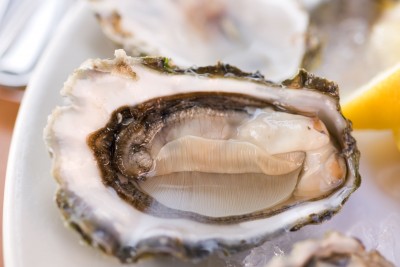From Oysters to Chocolate to Ginseng: Aphrodisiacs that Do and Don’t Work, According to Science
September 14, 2018 by Justin Lehmiller
People have been searching for tools to enhance their sex lives for centuries. Historically, herbs and foods have been the most popular products consumed in the hope of enhancing sexual desire, performance, or satisfaction. While many foods and herbs have been touted as aphrodisiacs, however, there hasn’t necessarily been a lot of evidence to back up these claims. And, in some cases, the data suggest that they might not be very effective after all.
In this post, we’ll take a look at what research says about some of the most well-known aphrodisiacs, according to a recent review of the literature published in the journal Sexual Medicine Reviews.
Oysters: Oysters are one of the oldest and most popular aphrodisiacs. They contain nutrients like zinc and certain amino acids that are thought to affect hormone and neurotransmitter production in ways that might boost sexual desire. However, according to the authors of the review paper, “there are no RCT [randomized controlled trial] data to confirm that oysters have any beneficial effects on sexual responsivity or satisfaction.” In other words, we can’t definitely say that oysters are aphrodisiacs—but we can’t say that they aren’t, either. We need data to know the answer.
Honey: Honey has also long been thought to be an aphrodisiac. In fact, the term “honeymoon” supposedly got its name from the fact that couples used to drink fermented honey every day after getting married until the arrival of the first new moon. Again, though, there’s a lack of scientific support one way or another for this one. In the words of the paper’s authors: “there are no data to support its use as an aphrodisiac.” So the verdict is still out on this one, too. The one exception is a certain type of honey known as “mad honey,” which definitely does not work. In fact, the authors say it can potentially be lethal and there’s at least one reported case in which two newlyweds both had heart attacks after taking some. That doesn’t sound like a great way to spend a honeymoon.
Chocolate: Many have argued that chocolate is an aphrodisiac, in part, due to the belief that consuming it affects serotonin levels in the brain. In this case, there is some data we can consult—but it suggests that chocolate has no effect on sexual function. Therefore, the idea of chocolate as an aphrodisiac is, in the words of the authors, a “myth.”
Ginkgo biloba: Gingko biloba is an herb that has long been used in traditional Chinese medicine to treat a range of medical issues, including sexual difficulties. One small study found that both men and women who had sexual difficulties stemming from use of selective serotonin reuptake inhibitors (SSRIs) experienced an improvement in symptoms after taking this herb. Ginkgo biloba is thought to work because it’s a vasodilator, meaning it increases blood flow to body tissues. Verdict: this one shows promise, but we need more data to verify the claims.
Ginseng: The aphrodisiac with the most data behind it is ginseng—and the results are pretty encouraging. In fact, there are seven double-blind, placebo controlled studies in men showing that ginseng improves erectile function. Research on women is more limited, but there are some data suggesting that ginseng enhances sexual arousal in postmenopausal women. The mechanism of action is thought to be through nitric oxide release promoting smooth muscle relaxation in the genitals. Verdict: ginseng has the most supporting data and is probably the closest thing we have to an herbal aphrodisiac based on the available scientific evidence.
Check out the full paper if you want to learn more because it covers dozens of purported aphrodisiacs that we didn’t get into here, including yohimbine, maca root, horny goat weed, Spanish fly, and more. Spoiler alert: the primary conclusion of the authors is that “future randomized clinical trials are warranted before health care practitioners can recommend most aphrodisiac products. There remain some medical concerns with drug interactions, purity, reliability, and safety.”
Want to learn more about Sex and Psychology ? Click here for previous articles or follow the blog on Facebook (facebook.com/psychologyofsex), Twitter (@JustinLehmiller), or Reddit (reddit.com/r/psychologyofsex) to receive updates.
To learn more about this research, see: West, E., & Krychman, M. (2015). Natural aphrodisiacs—A review of selected sexual enhancers. Sexual Medicine Reviews, 3, 279-288.
Image Source: 123RF
You Might Also Like:

Dr. Justin Lehmiller
Founder & Owner of Sex and PsychologyDr. Justin Lehmiller is a social psychologist and Research Fellow at The Kinsey Institute. He runs the Sex and Psychology blog and podcast and is author of the popular book Tell Me What You Want. Dr. Lehmiller is an award-winning educator, and a prolific researcher who has published more than 50 academic works.
Read full bio >


